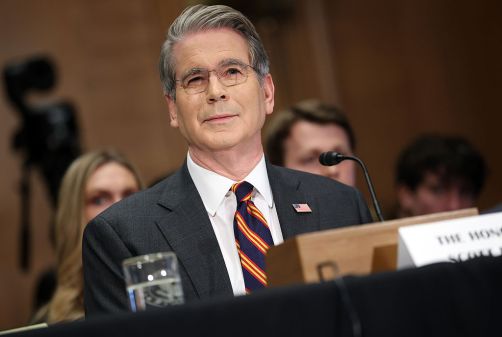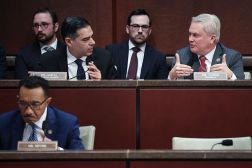Biden signs Government Service Delivery Improvement Act into law

President Joe Biden on Saturday signed into law the Government Service Delivery Improvement Act, legislation that targets improving customer service interactions with the government.
The bill (H.R. 5887) was first introduced by Reps. Ro Khanna, D-Calif., Byron Donalds, R-Fla., Barry Loudermilk, R-Ga., and William Timmons, R-S.C., in October 2023. Now as law, it requires the Office of Management and Budget to choose a senior official as a “Federal Government Service Delivery Lead” to coordinate government service delivery improvement within agencies.
That service delivery lead would also work with new agency-appointed senior officials, who must be named within a year of the bill’s enactment, to oversee their organizations’ delivery improvements.
The official in the new OMB-level role would be tasked with developing and overseeing the implementation of “standards, policies and guidelines for services and programs provided by agencies,” according to the bill text.
Khanna, the House sponsor for the bill, said in a statement to FedScoop: “The federal government should make it as easy and efficient as possible for Americans to access services and benefits – whether that’s small business loans or veterans’ benefits. The Government Service Delivery Improvement Act is a bipartisan solution that will directly help constituents by making the delivery of these services more efficient and reliable.”
Rep. Nancy Mace, R-S.C., who became a co-sponsor on this bill at the end of 2023, pointed to its impact on modernizing the delivery of government services to benefit the public, calling it “a major step toward fixing our outdated, unaccountable federal bureaucracy,” in a statement to FedScoop.
“Under the next Trump administration, initiatives like the Department of Government Efficiency (DOGE) will have the tools to modernize service delivery and put the American people first. Whether it’s veterans, seniors, or students, this law ensures the government works for them—not against them,” she continued.
The legislation does not authorize any new funds to be made available to agencies to carry out the tasks within the text. Rather, the bill states that the head of each agency has to comply with the act and any amendments made “using existing funds.”
The bill also requires the Government Accountability Office to submit a report on the implementation and effectiveness of the customer service delivery efforts with specific recommendations to “further the implementation and effectiveness” of the legislation, no later than two years after enactment, according to the bill’s text.
Additionally, the director of OMB and the new federal government service delivery lead are required to submit a report that includes an assessment of the implementation and effectiveness of the law, recommendations to further the improvements, and a summary of the usefulness of the metrics collected in improving the quality of service delivery.
The bill advances Khanna’s preceding 21st Century IDEA Act, which had a similar goal of pushing agencies to provide accessible digital services for the general public. The bill was signed into law at the end of 2018, but OMB furthered the legislation’s guidance for federal agencies in 2023 through a memo to help agencies fully implement the law.






